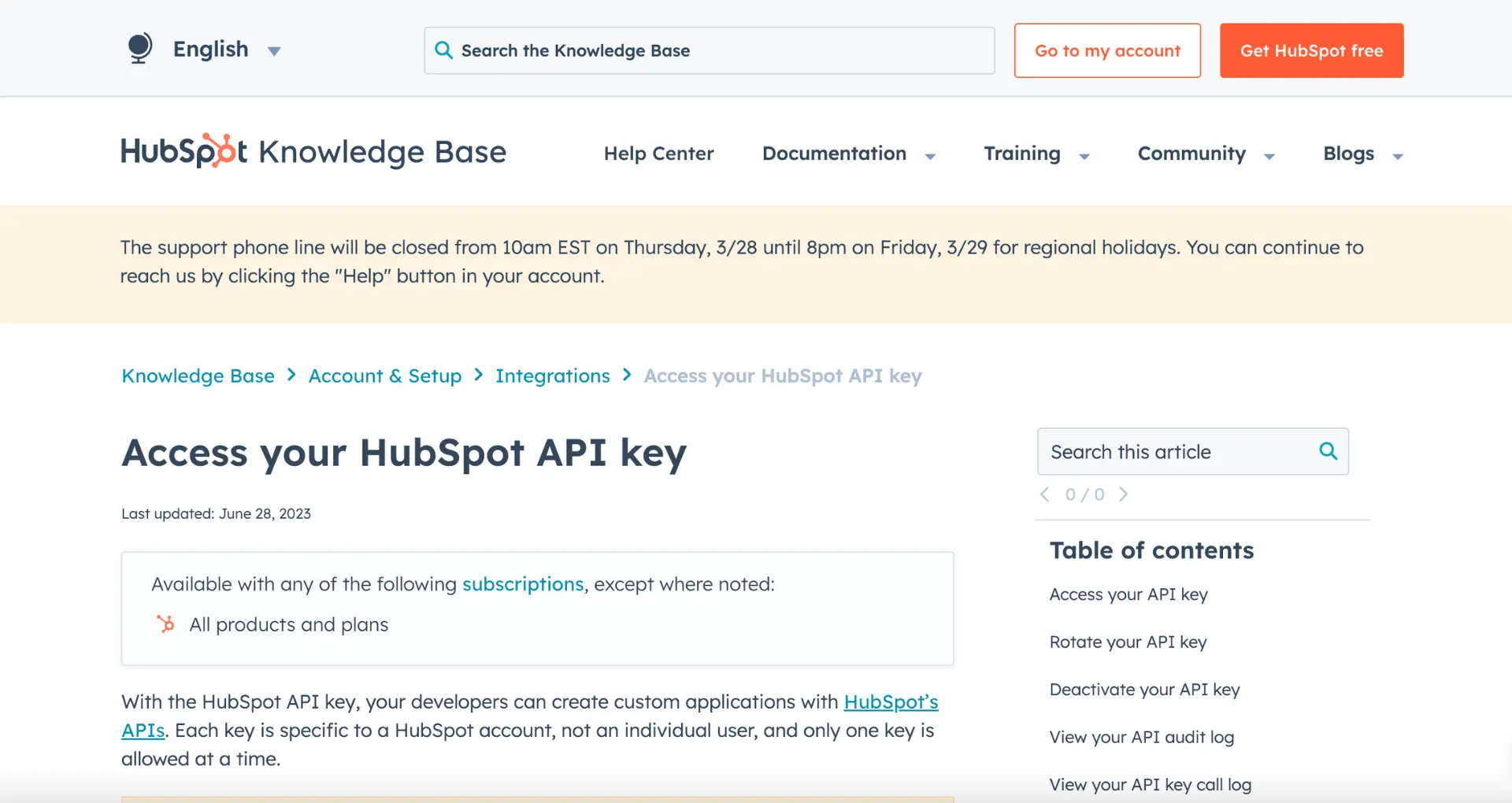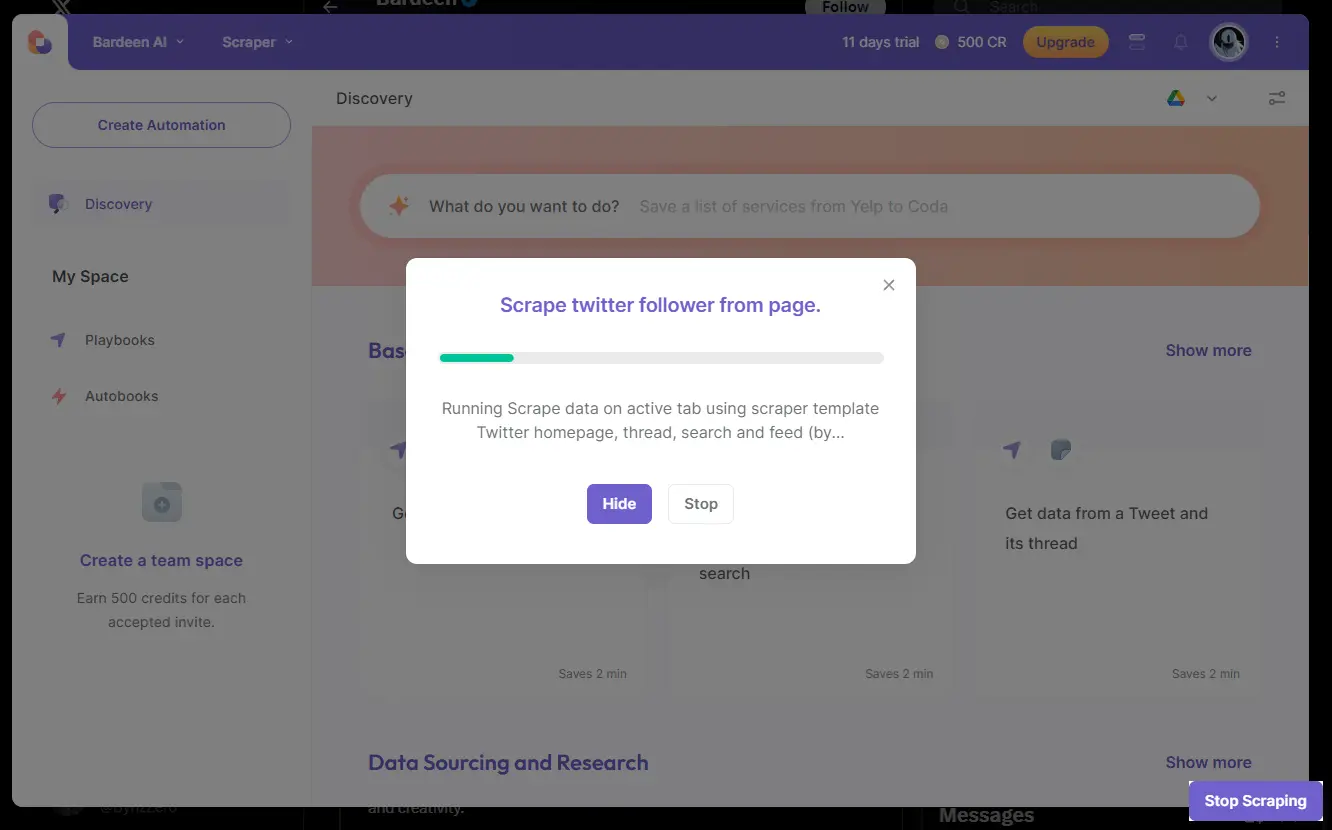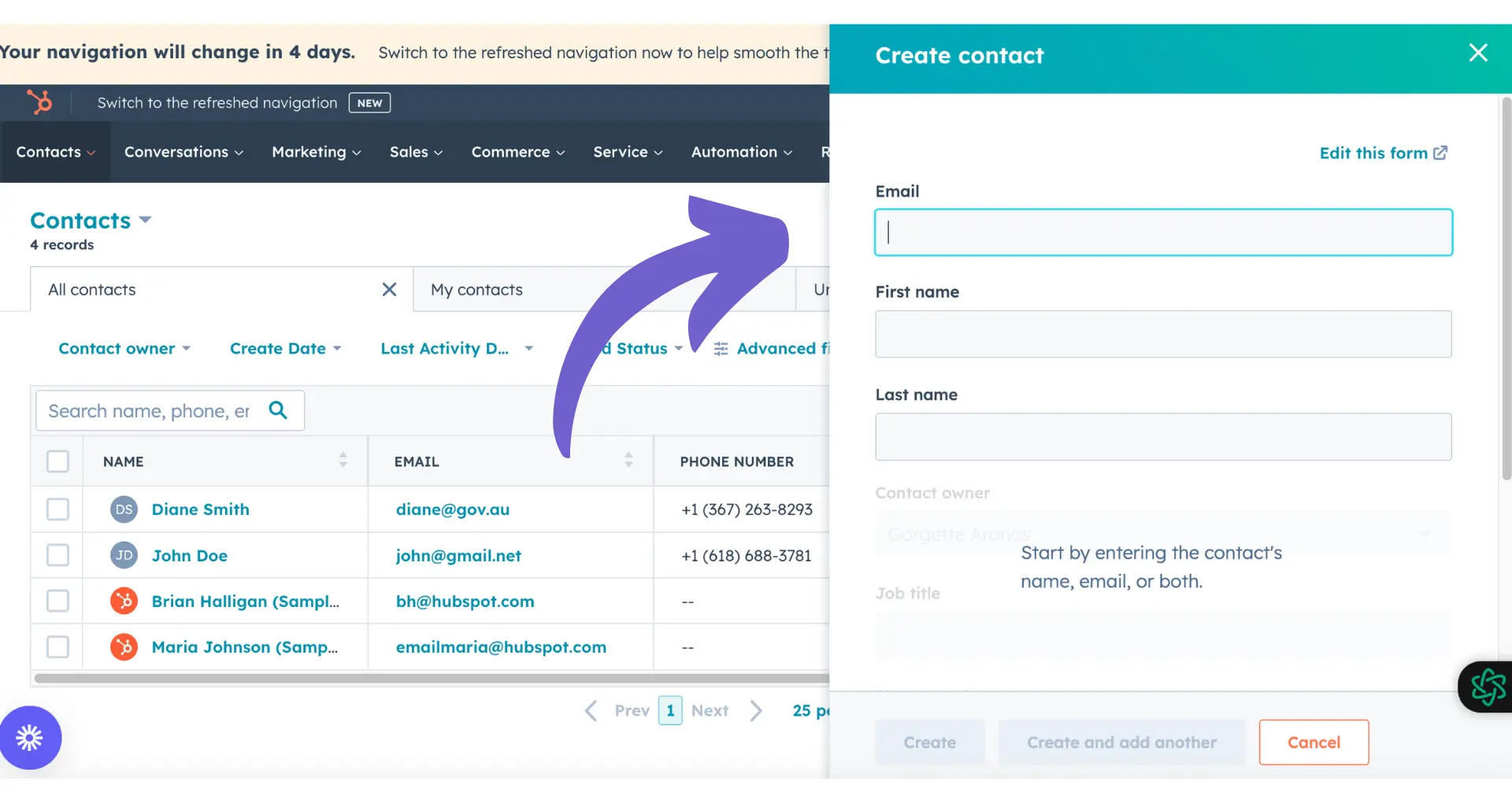





Sales operations optimize processes, leverage tech, and drive performance.
By the way, we're Bardeen, we build a free AI Agent for doing repetitive tasks.
If you're in sales, you might love Bardeen's AI for sales. It automates prospecting, lead generation, and email outreach, saving time and improving efficiency.
Sales operations is a critical function within any sales organization, responsible for optimizing processes, leveraging technology, and driving performance. In this comprehensive guide, we'll explore the core concepts of sales operations, strategies for success, and best practices to help your team achieve its goals.
Understanding sales operations is essential for businesses looking to maximize revenue, improve efficiency, and stay ahead of the competition. By implementing effective sales operations strategies, you can streamline workflows, enhance data-driven decision making, and ultimately, close more deals.
In this step-by-step guide, we'll cover both traditional and modern approaches to sales operations, including how to harness the power of automation tools like Bardeen. Whether you're a seasoned sales professional or just starting out, this guide will provide you with the knowledge and skills needed to excel in the dynamic world of sales operations.
Are you ready to take your sales game to the next level? Do you want to learn how to build a high-performing sales operations team that consistently crushes targets? Then buckle up, because this guide is about to transform the way you approach sales operations!
Sales operations is the backbone of any successful sales organization, ensuring that processes are optimized, data is leveraged effectively, and the sales team has the resources they need to close deals. By defining clear objectives and assigning key roles and responsibilities, sales operations can drive efficiency and performance across the entire sales funnel.
At its core, sales operations is responsible for streamlining the sales process, from lead generation to closing deals. This involves setting strategic goals, such as increasing revenue, improving sales efficiency, and enhancing customer satisfaction. For example, a software company might task their sales operations team with reducing the average sales cycle length by 20% through process optimization and automating sales prospecting.
To achieve these objectives, sales operations must collaborate closely with other departments, including marketing, finance, and customer success. By aligning efforts and sharing data, sales operations can ensure that the entire organization is working towards common goals and maximizing revenue potential.
A typical sales operations team consists of several key roles, each with specific responsibilities:
By assigning clear roles and responsibilities, sales operations can ensure that each team member is focused on driving specific outcomes and contributing to overall success. For instance, a sales analyst might identify that deals are often stalling at a particular stage of the sales cycle, prompting the sales enablement specialist to develop targeted training to help reps overcome common objections.
Sales operations is the driving force behind a high-performing sales team. By setting clear objectives, assigning key roles, and fostering collaboration, sales operations can optimize processes, leverage data, and empower reps to close more deals.
In the next section, we'll explore how integrating technology can further enhance sales operations, enabling teams to work smarter and faster. Learn more about sales intelligence and how it can drive performance.
Technology plays a crucial role in streamlining sales operations, enabling teams to work more efficiently and effectively. By leveraging tools such as Customer Relationship Management (CRM) systems and data analytics, sales operations can optimize processes, gain valuable insights, and drive better results. Integrating these technologies seamlessly into the sales workflow is essential for maximizing their potential and staying ahead of the competition.
CRM systems are the backbone of modern sales operations, providing a centralized platform for managing customer data, tracking interactions, and automating key processes. By implementing a robust CRM solution, sales teams can streamline lead management, opportunity tracking, and pipeline forecasting. For instance, a SaaS company can leverage its CRM to automatically assign leads to the appropriate sales rep based on predefined criteria, ensuring timely follow-up and reducing the risk of missed opportunities.
Moreover, CRM systems enable seamless collaboration between sales, marketing, and customer success teams. By sharing a single source of truth, these teams can align their efforts, personalize customer engagements, and deliver a more cohesive experience across the customer lifecycle. This integration is particularly valuable for account-based marketing strategies, where targeted messaging and coordinated outreach are essential for winning high-value deals.
Data is the lifeblood of modern sales operations, and leveraging analytics and data management tools is essential for making informed decisions and optimizing performance. By integrating these tools with CRM systems and other data sources, sales operations can gain a comprehensive view of customer behavior, sales trends, and market opportunities. For example, a retail company can use advanced analytics to identify cross-selling and upselling opportunities based on customer purchase history and preferences.
Furthermore, data management tools enable sales operations to maintain data quality, ensure compliance with privacy regulations, and derive actionable insights from vast amounts of structured and unstructured data. By automating data cleansing, deduplication, and enrichment processes, sales teams can focus on high-value activities while relying on accurate and up-to-date information to guide their efforts.
Integrating technology is a game-changer for sales operations, enabling teams to work smarter, faster, and more effectively. By harnessing the power of CRM systems, analytics, and data management tools, sales operations can drive efficiency, uncover valuable insights, and deliver better results.
Bardeen can further optimize your sales ops by helping you automate sales prospecting. Save time on lead research and list building in minutes.
In the next section, we'll explore best practices for managing sales operations, including strategies for effective communication and scalable processes. Learn more about automating sales prospecting to stay ahead.
Effective sales operations management requires a combination of clear communication, well-defined processes, and a focus on continuous improvement. By implementing best practices in these areas, sales operations teams can create a foundation for success that supports the entire sales organization. Cross-functional collaboration and scalable processes are key to driving efficiency and enabling sales teams to reach their full potential.
Clear communication is the cornerstone of successful sales operations management. By establishing open lines of communication between sales, marketing, customer success, and other key stakeholders, sales operations can ensure that everyone is working towards common goals. Regular cross-functional meetings, shared dashboards, and collaborative tools can help break down silos and foster a culture of transparency and teamwork.
For example, a software company can implement a weekly standup meeting where representatives from each team share updates, discuss challenges, and align on priorities. This approach helps identify potential roadblocks early on and enables teams to work together to find solutions. By facilitating effective communication, sales operations can create a more cohesive and efficient sales organization.
Scalable and adaptable sales processes are essential for long-term success. As a company grows and evolves, its sales processes must be able to keep pace. Sales operations teams play a critical role in developing and maintaining these processes, ensuring that they are well-documented, easily repeatable, and flexible enough to accommodate change.
One effective approach is to create a centralized repository of sales process documentation, including step-by-step guides, templates, and best practices. This resource should be easily accessible to all team members and regularly updated to reflect changes in the market or the organization. By standardizing processes and providing clear guidance, sales operations can help teams work more efficiently and consistently, ultimately leading to better results.
Effective sales operations management requires a combination of clear communication, well-defined processes, and a focus on continuous improvement. By fostering collaboration across teams and implementing scalable, adaptable processes, sales operations can create a strong foundation for success. Learn about preparing for a sales call to further enhance your sales strategy.
In the next section, we'll explore the latest trends and future directions in sales operations, including the impact of AI and the evolving role of sales professionals.
As technology continues to evolve, sales operations must adapt to stay ahead of the curve. Artificial intelligence (AI) and machine learning are poised to revolutionize the way sales teams operate, while the roles of sales professionals will likely shift to accommodate these advancements. By embracing these trends and proactively preparing for the future, sales operations can position their organizations for long-term success.
AI and machine learning have the potential to transform sales operations by automating repetitive tasks, analyzing vast amounts of data, and providing actionable insights. For example, AI-powered tools can help sales teams prioritize leads, predict customer behavior, and optimize pricing strategies. By leveraging these technologies, sales operations can free up time for reps to focus on high-value activities, such as building relationships and closing deals.
Automate these repetitive tasks with Bardeen and let your team focus on what's important.
However, implementing AI and machine learning requires a strategic approach. Sales operations must carefully evaluate their needs, select the right tools, and ensure that their data is clean and structured for optimal results. As AI continues to advance, it will become increasingly important for sales operations to stay informed about the latest developments and adapt their strategies accordingly. AI sales automation can greatly enhance efficiency in these processes.
As AI and automation take on more tasks traditionally performed by sales professionals, the roles of these individuals will likely evolve. While some may fear that AI will replace human salespeople, the reality is that it will likely augment their capabilities and allow them to focus on higher-level strategic activities.
Sales operations can help prepare their teams for this shift by investing in training and development programs that emphasize skills such as critical thinking, problem-solving, and emotional intelligence. By equipping sales professionals with the tools and knowledge they need to adapt to the changing landscape, sales operations can ensure that their organizations remain competitive in the years to come.
The future of sales operations is closely tied to the advancements in AI, machine learning, and automation. By embracing these trends and proactively preparing for the evolution of sales roles, sales operations can drive efficiency, productivity, and long-term success for their organizations. Learn how to automate sales prospecting to save time and improve efficiency.
Understanding sales operations is crucial for driving efficiency, productivity, and success in any sales-driven organization.
In this guide, you discovered:
By implementing these strategies and staying ahead of the curve, your sales operations team can thrive. Remember, a well-oiled sales operations machine is the key to recognizing buying signals and unlocking your organization's full potential!










SOC 2 Type II, GDPR and CASA Tier 2 and 3 certified — so you can automate with confidence at any scale.
Bardeen is an automation and workflow platform designed to help GTM teams eliminate manual tasks and streamline processes. It connects and integrates with your favorite tools, enabling you to automate repetitive workflows, manage data across systems, and enhance collaboration.
Bardeen acts as a bridge to enhance and automate workflows. It can reduce your reliance on tools focused on data entry and CRM updating, lead generation and outreach, reporting and analytics, and communication and follow-ups.
Bardeen is ideal for GTM teams across various roles including Sales (SDRs, AEs), Customer Success (CSMs), Revenue Operations, Sales Engineering, and Sales Leadership.
Bardeen integrates broadly with CRMs, communication platforms, lead generation tools, project and task management tools, and customer success tools. These integrations connect workflows and ensure data flows smoothly across systems.
Bardeen supports a wide variety of use cases across different teams, such as:
Sales: Automating lead discovery, enrichment and outreach sequences. Tracking account activity and nurturing target accounts.
Customer Success: Preparing for customer meetings, analyzing engagement metrics, and managing renewals.
Revenue Operations: Monitoring lead status, ensuring data accuracy, and generating detailed activity summaries.
Sales Leadership: Creating competitive analysis reports, monitoring pipeline health, and generating daily/weekly team performance summaries.